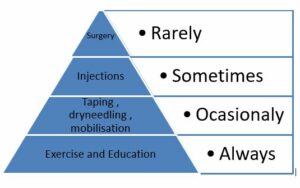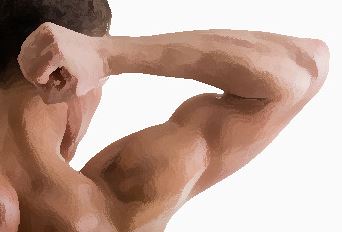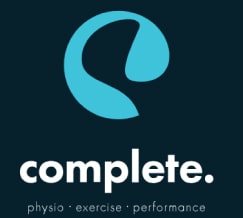What is the Rotator Cuff related pain?
It is characterized by pain involving various activities like lifting the arm, carrying heavy load, wearing a seat belt etc. Commonly people also feel pain when sleeping and with shoulder activities that involve reaching behind their back.
What structures are affected?
It is referred to as rotator cuff related shoulder pain because the tendons of the rotator cuff, a group of muscles that surround the shoulder, are usually affected. The tendons can become thicker and sometimes tears can also occur. The bursa, a fluid filled sack that sits above the rotator cuff tendons, may become thicker and larger.
Tears sound scary. Does this mean they need to be repaired?
The good news is that most people with this type of shoulder pain (about 80%) respond to exercise and are advised to continue with exercise treatment over 12 weeks or so. The really interesting thing about tendon tears is that they can be a completely normal finding on a scan.
Sounds strange doesn’t it?
One study, (Russel et al , 2014 ) found that among a large group of people with and without shoulder pain found that rotator cuff tendon tears were as common among people without shoulder pain as people with shoulder pain.
What are the best treatments?
Because tears and pathology are not closely related to pain, the focus of treatment should be to improve pain and function. Guidelines recommend that everyone should trial 12 weeks of progressive exercise prior to considering other treatments like surgery or injections. The important thing here is that the exercise programs required to optimise outcomes can be different for each person, and may be helped through guidance from a health professional like a physiotherapist.

What factors can cause rotator cuff pain?
An important part of treatment is also addressing factors that cause rotator cuff related pain. Most Rotator cuff pain related pain is a gradual onset without trauma. However, Rotator cuff can also be injured post sudden traumatic event such as a fall
Factors which are related to gradual rotator cuff related pain are listed below:
- Increased age
- Reduced muscle strength
- Compromised general health such as high cholesterol and diabetes
- Certain medications (e.g. fluroquinolones – a type of antibiotic)
- Smoking history
- Repetitive movements, particularly above shoulder height
Are you experiencing shoulder pain? Book an initial physiotherapy assessment at Complete. Physio Exercise Performance.


